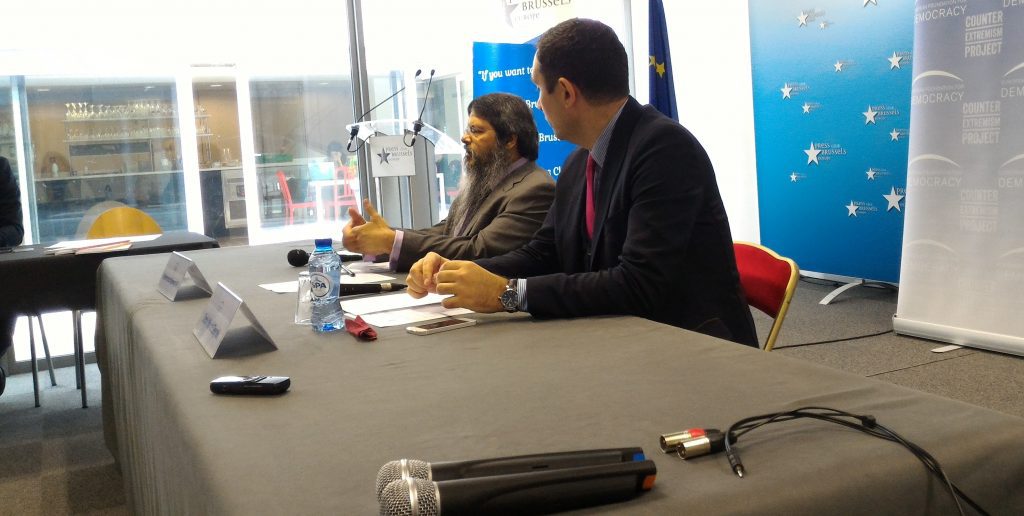Event

Jihadist radicalisation in schools, universities, prisons and mosques: What challenges for Europe?
On June 28, the European Foundation for Democracy, the European Policy Centre, the Counter Extremism Project and the Institute for International Political Studies (ISPI) hosted a conference entitled: “Jihadist radicalisation in schools, universities, prisons and mosques: What challenges for Europe?”. Guest speakers included: Rupert Sutton, Director of Students Rights (UK); Muhammad Manwar Ali, Imam, Founder and Chief Executive of Muslim educational charity JIMAS (UK); Rodrigo Ballester, Member of Cabinet of Tibor Navracsics from the European Commissioner; Stefano M. Torelli, Research Fellow at ISPI. The event was moderated by Andrea Frontini, Policy Analyst at the European Policy Centre.
The discussion mainly focused on the radicalisation process which occurs in schools, prisons and mosques. For years these institutions have been incubators for recruiting and harbouring individuals with extreme and violent ideologies. This process has occurred within the framework of a number of societal and political failures, such as insufficient oversight of the curricula that is taught in schools and universities, uncontrolled activities by extreme preachers in mosques and lack of sustainable and strategic approaches of convicted individuals, both during the incarceration as well as the probation period.
Throughout the discussion, possible solutions to these issues were examined, first and foremost from the level of the European Institutions. The recent statement issued by the European Commission regarding radicalisation was analysed, highlighting its innovative capacity and underlining the important steps the Institutions have been taking to tackle the spread of radicalization
Universities lack a proper counter- radicalisation training program and prisons often see the rise of radicalized inmates as a reaction to unfair detention. Mosques often have imams that are not properly trained, which leads to an improper teaching of Islam. A counter-narrative strategy as well as better trained prison staff and imams are generally seen as viable answers to these problems
For the video of the event, please click on our YouTube page.
